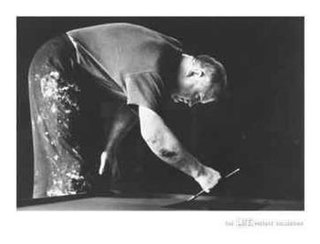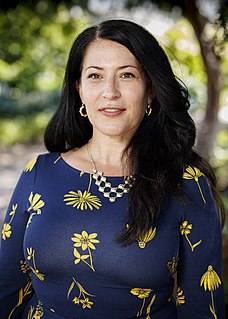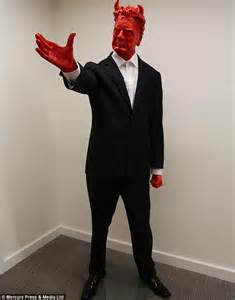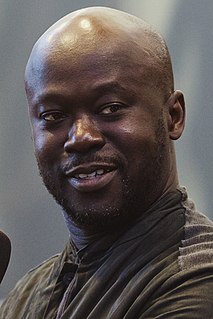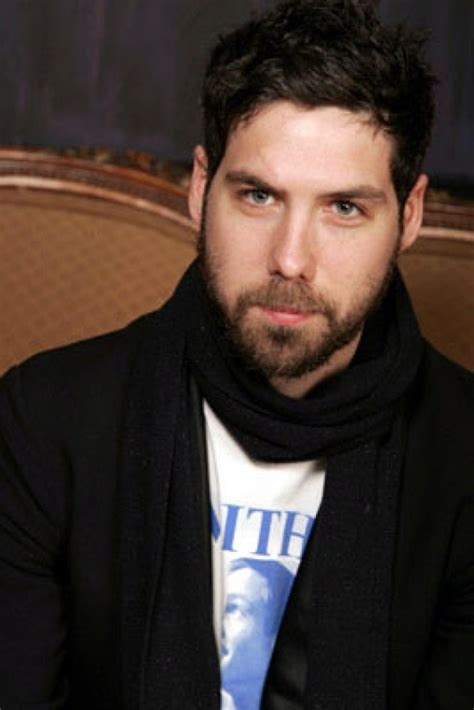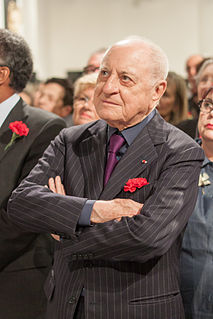A Quote by Molly Crabapple
Objectifying is kind of a funny thing. Art is objectification, all art, because you're taking someone and making them into an object. But people can also talk back more to you when you're sketching them. They can look at you and say, 'Oh man, you got me wrong.'
Related Quotes
The one object of fifty years of abstract art is to present art-as-art and as nothing else, to make it into the one thing it is only, separating and defining it more and more, making it purer and emptier, more absolute and more exclusive - non-objective, non-representational, non-figurative, non-imagist, non-expressionist, non-subjective. the only and one way to say what abstract art or art-as-art is, is to say what it is not.
So I say, if you cannot learn to love real art; at least learn to hate sham art and reject it. It is not because the wretched thing is so ugly and silly and useless that I ask you to cast it from you; it is much more because these are but the outward symbols of the poison that lies within them; look through them and see all that has gone to their fashioning, and you will see how vain labour, and sorrow, and disgrace have been their companions from the first-and all this for trifles that no man really needs!
I'm more likely to not invite someone back for not talking. If someone talks a lot, I can usually shut them up and control them. But with people who don't talk, if they don't really want to talk, they probably shouldn't be on this show, and that's fine. They're talented people with things to say, but sometimes people say what they have to say through other means than arguing.
Stand-up is an art but since it's humor and it's funny - a lot of guys that don't think it's art are probably coming from the angle that they don't want to take it so seriously. I've always looked at it as an art but I don't look at it as a pretentious art. I understand it has to be taken lightly because it is just comedy in the end, but the good stand-up comics are someone with something to say.
I think, as poets, we are in the odd position of constantly defending our art form. Which is funny and also sort of invigorating, too. No one really says, "Oh you're a lawyer? I've never understood the law. In fact, I kind of hate it." Or, "Oh you wait tables? I didn't know that was something people did." I say it can be invigorating because, on some level, we have to evaluate what we do and why we do it almost daily. We have to explain ourselves to people all the time. We have to say, "Yes, I am a unicorn, believe in me."
I've heard that almost all the people crowding around the big art openings barely look at the work on display and are just there to hobnob. Nothing wrong with that, except that none of them ever come back to look at the art - but they will tell everyone, and actually believe, that they have seen the exhibition.
I'm trolling through the recesses of my mind for the things I did with my kids when they used to like to do things with me. They don't want to be around me now. I look back on these times - all those little funny pottery dishes that you'd pay for, and they'd paint, and they were ugly, and you glazed them, and you'd go back, pick them up, and it's like, "Oh, now I've got to put this on my desk." There's all that kind of stuff.
When I first came to New York, I knew some painters older than myself. I was kind of the kid who was allowed to hang out with them. That is more the way people talked in those days, it was perfectly normal to question a work's fundamental premises and its fundamental visual manifestations. It was perfectly okay to say, "Oh, that should have been red" or something like that. In a funny way, the way artists talk about art is to de-privilege it.
I got into architecture because I was searching for a way to produce in the world. I went to art school and thought I would do it through art, but I realized very quickly that I was interested in the social ramifications of form making. So buildings became the vehicle and fulfilled that thing. That satisfied me when I produced them. I decided this is what I wanted to do with the rest of my life.
Funny bones, to me, are more important than funny lines. If a comedian is just not likable and doing the lines, you could read them yourself. Whereas if someone [you like] shambles out, and they tell you what a bad day they've had, they don't have to say anything. I love them. I want to hug them because they've been through something. And it comes back to empathy, always empathy.
I never went into aesthetics. Aesthetics is what philosophers have to say about art, and a lot of them take an analytics position and raise the question, "What is an art object?" As soon as you fall into that trap, an artist is going to come along and say, "That isn't art - it's something else." That's a hopeless gig.
Two of my favorite artists are Josh Smith and Joe Bradley. But I argued against them for years, until I grew to love them and felt stupid for my immediate reaction towards their work. Now, I wouldn't be happier than to simply be their friend and to talk to them about what got them making art that was years ahead of my understanding. I never went to school for art or was told what to like or when. So every day is a learning process, like most of life.

